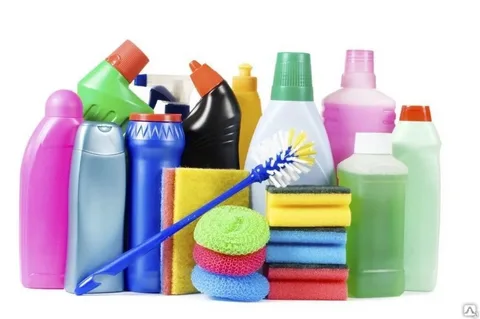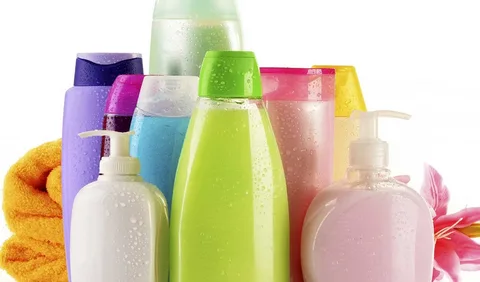Our choices in personal care products can make a significant difference in a world increasingly aware of its environmental footprint. Hygiene routines often go unnoticed when it comes to sustainability, but the truth is that every Hygiene Product we use—from toothpaste to deodorant—has an impact on our planet. Empowering ourselves with knowledge is the first step toward making more sustainable choices. Not only can these decisions lead to a healthier planet, but they can also improve our overall well-being. If you’re curious about how to make your hygiene routine greener, you’re in the right place!
The Importance of Using Eco-Friendly Hygiene Personal Products
Choosing eco-friendly Hygiene Personal Products is essential for reducing our environmental impact. Traditional personal care items often contain harmful chemicals that affect our health and pollute our waterways. Switching to sustainable alternatives helps minimize plastic waste, as many eco-friendly brands prioritize biodegradable or recyclable packaging. This small change can significantly reduce the amount of plastic entering landfills and oceans.
Furthermore, these products are usually made from natural ingredients that are gentler on your skin and the environment. Many conventional products use synthetic additives that may cause irritation or allergic reactions. We support companies committed to ethical practices and sustainability by opting for greener choices. This shift encourages innovation and inspires others to consider their consumption habits, ultimately fostering a community focused on protecting our planet for future generations.
Harmful Chemicals Found in Conventional Hygiene Personal Products
Many conventional Hygiene Personal Products contain harmful chemicals that can harm our health and the environment. Ingredients like parabens, which are often used as preservatives, may disrupt hormonal balance. This is concerning for individuals of all ages. Sodium lauryl sulphate (SLS) is another common offender in shampoos and body washes. It’s known for its foaming properties but can irritate skin and eyes, leading to dryness or allergic reactions.
Synthetic fragrances add pleasant scents but often mask a cocktail of undisclosed chemicals linked to respiratory issues or headaches. These ingredients don’t just affect personal well-being; they also seep into water systems during disposal. Triclosan, an antibacterial agent in many soaps, raises questions about antibiotic resistance and toxicity levels in aquatic life. It’s time we reconsider what goes on in our bodies and how it impacts the planet’s health,
The Benefits of Organic and Natural Ingredients
Organic and natural ingredients are a game changer for Hygiene Personal Products. They offer a gentler alternative to synthetic chemicals, making them ideal for sensitive skin. Choosing products with organic components makes you less likely to experience irritation or allergic reactions. Moreover, these ingredients come from sustainable farming practices that prioritize environmental health. This means cleaner water sources and healthier soil, contributing to ecological balance.
Using natural extracts like aloe vera or tea tree oil not only nourishes your skin but also ensures that harmful additives are kept at bay. These botanicals often possess healing properties that enhance overall well-being. Opting for organic hygiene items also supports ethical sourcing methods. It encourages fair labour practices and helps communities thrive while protecting ecosystem biodiversity. Your choices can inspire positive change beyond just personal care routines.
DIY Alternatives for a More Sustainable Routine
Creating your Hygiene Personal Products can be both fun and eco-friendly. Simple ingredients from your kitchen can replace many conventional items. Mix coconut oil, baking soda, and essential oils for a natural deodorant. This blend is effective and free of harmful chemicals.
You can also make toothpaste by combining baking soda with coconut oil and a few drops of peppermint oil for flavour. It’s an easy way to avoid artificial sweeteners and preservatives. Shampoo alternatives are just as simple. A mixture of apple cider vinegar with water works wonders for cleansing hair without the harsh additives in commercial shampoos.
Remember body scrubs! Combine sugar or coffee grounds with olive oil for a gentle exfoliant that hydrates skin naturally. Crafting these DIY options reduces waste and lets you control what goes on in your body. Embrace creativity while caring for the planet!
Tips for Making the Switch to Eco-Friendly Hygiene Personal Products
Switching to eco-friendly Hygiene Personal Products can initially feel overwhelming, but it’s rewarding. Here are some actionable tips to ease the transition:
Start Small
Choose one product to replace each month. This gradual approach makes it manageable and less daunting.
Research Brands
Look for companies committed to sustainability. Check labels for certifications like USDA Organic or EcoCert.
Read Ingredients
Familiarize yourself with harmful chemicals and avoid those in your new purchases. Knowledge is power when it comes to choosing safe alternatives.
Embrace Reusables
Consider switching from single-use items like cotton pads or plastic razors to reusable options that reduce waste over time.
Share Your Journey
Engage with friends and family about your choices. Sharing insights helps you stay motivated and encourages others to consider sustainable options.
Transitioning doesn’t happen overnight—it’s a process of learning, experimenting, and adapting. Every small change contributes significantly toward a more sustainable future, making our planet cleaner for future generations.
How to Support Sustainable Brands and Initiatives?
Supporting sustainable brands goes beyond just making purchases. It starts with research. Look for companies that prioritize eco-friendly practices, fair labour conditions, and transparency in their sourcing. Engage with these brands on social media. Share their initiatives and promote conversations around sustainability. Your voice can amplify their message.
Consider joining community events or workshops hosted by these brands. These gatherings often provide valuable insights into sustainable living while creating connections among like-minded individuals. Another effective way to support is through direct feedback. Write reviews highlighting the positive impact of using eco-friendly products and encourage others to switch.
Consider crowdfunding platforms where you can help launch innovative sustainable products or initiatives directly from entrepreneurs passionate about environmental health. It’s a great way to support emerging ideas that align with your values while driving change.
 The Impact of Eco-Friendly Hygiene Product on Health
The Impact of Eco-Friendly Hygiene Product on Health
Eco-friendly Hygiene Product significantly affects our health. They often contain natural ingredients that reduce the risk of skin irritations and allergic reactions. Conventional products can have harsh chemicals that disrupt hormonal balance or cause long-term health issues.
Using eco-conscious alternatives promotes better well-being. Ingredients derived from plants are less likely to accumulate toxins in your body, providing a gentler approach to personal care. This shift also benefits the environment, improving air and water systems.
Choosing these products fosters mindfulness about what you put on your skin daily. It’s not just about aesthetics; it’s about nurturing your body with safe, sustainable options that align with a healthier lifestyle while respecting our planet’s resources. The ripple effect is profound—healthier choices lead to a more vibrant community overall.
Tips for Transitioning to Sustainable Hygiene Routines
Transitioning to sustainable hygiene routines can be a rewarding journey. Start small by replacing one product at a time, like opting for bamboo toothbrushes instead of plastic ones. Look for refillable options when shopping for personal care items. This reduces waste and often saves you money in the long run.
Consider your routine’s frequency. If you use certain products daily, prioritize eco-friendly choices that align with those habits first. Educate yourself on brands committed to sustainability. Research their practices and ingredient sourcing to support companies making positive changes. Don’t shy away from experimenting with DIY recipes at home. Crafting your shampoo or deodorant gives you control over ingredients and packaging while being kind to the planet.
Key Ingredients to Avoid in Traditional Hygiene Personal Products
When choosing Hygiene Personal Products, it’s essential to be aware of harmful ingredients lurking in conventional options. Parabens are one such offender; used as preservatives, they can disrupt hormone function. Another ingredient to steer clear of is phthalates. These chemicals often appear in fragrances, leading to reproductive issues over time.
Sodium lauryl sulphate (SLS) is commonly found in shampoos and body washes for its foaming properties. Unfortunately, it may irritate the skin and eyes while stripping away natural oils. Artificial colours may make a product visually appealing but often come from petroleum sources and could cause allergic reactions or sensitivities.
Triclosan—a joint antibacterial agent—can contribute to antibiotic resistance and harm aquatic life when washed down the drain. Being vigilant about these ingredients empowers you to make healthier choices for your body and the planet.
Eco-Friendly Packaging Options: Biodegradable vs. Recyclable
When it comes to eco-friendly packaging, understanding the difference between biodegradable and recyclable options is crucial. Biodegradable materials break down naturally over time through the action of microorganisms. They can decompose into non-toxic components, making them an appealing choice for reducing waste.
On the other hand, recyclable packaging is designed to be processed and turned into new products. This method conserves resources and reduces landfill overflow. It requires a more complex system involving collection, sorting, and processing that may only sometimes be available in some areas.
Both types have merits depending on your sustainability goals. Choosing biodegradable items can lessen immediate environmental impact, but recycling supports a circular economy by encouraging the reuse of materials. Consumers should look for certifications or labels indicating how these packages will perform after use. Staying informed empowers you to make choices that align with your values while contributing positively to the planet’s health.
Conclusion
Choosing eco-friendly Hygiene Product is a meaningful step toward a healthier future. Our choices today have lasting impacts on our bodies and the planet. Embracing sustainable options fosters awareness about environmental responsibility. Every small change contributes to more extraordinary collective efforts. Supporting brands prioritising natural ingredients and ethical practices allows us to align personal values with purchasing power. It encourages innovation in the industry, pushing for more eco-conscious alternatives. This journey requires patience and learning but leads to rewarding experiences that promote individual and planetary health. Small actions lead to significant changes, nurturing ourselves and the world.
FAQs
Choosing eco-friendly Hygiene Personal Products is essential to a healthier planet and a better you. As consumers, we can drive change in the industry by making informed choices. Here are some frequently asked questions that can help guide your transition toward more sustainable hygiene practices.
What are eco-friendly Hygiene Personal Products?
Eco-friendly Hygiene Personal Products are those made with natural ingredients and sustainable practices. They avoid harmful chemicals, synthetic fragrances, and plastics, prioritizing human health and environmental impact.
How can I identify harmful chemicals in my Hygiene Product?
To spot harmful chemicals, read ingredient labels carefully. Look for parabens, phthalates, sulphates, or artificial colours and fragrances. If a Hygiene Product sounds complicated or unfamiliar, it’s worth researching further before using it on your body.
Are DIY alternatives effective for personal care?
Yes! Many DIY recipes use simple ingredients like coconut oil, baking soda, or essential oils that effectively cleanse without harsh additives. Plus, they allow you to customize based on your preferences.
Can switching to eco-friendly brands be costly?
While some sustainable brands may have higher upfront costs due to quality materials used in production processes and packaging designs, affordable options are also available—especially when considering bulk purchases or local artisans prioritising sustainability.
Is all biodegradable packaging recyclable too?
Not necessarily. Biodegradable items break down over time under certain conditions. Still, recycling systems vary widely across different regions—so it’s important to check local guidelines regarding disposal methods for specific types of packaging before throwing them away!
Transitioning starts small but makes an impact over time as we align our habits with values centred around sustainability and well-being!
| Other Good Articles to Read |
| Blogs Rain |
| Cme Blog Spot |
| Garcias Blogs |
| Yyc Blogs |
| Blogs-Hunt |
| Impact-Blog |
| Smarty Blogs |
| Ed Blog |
| Mo Blogs |
| Blogs Em |
| Blogs T |
| Related Business Listings |
| Contact Directory |
| Local Business Profiles |



